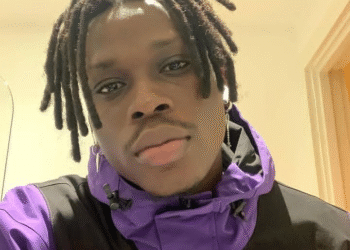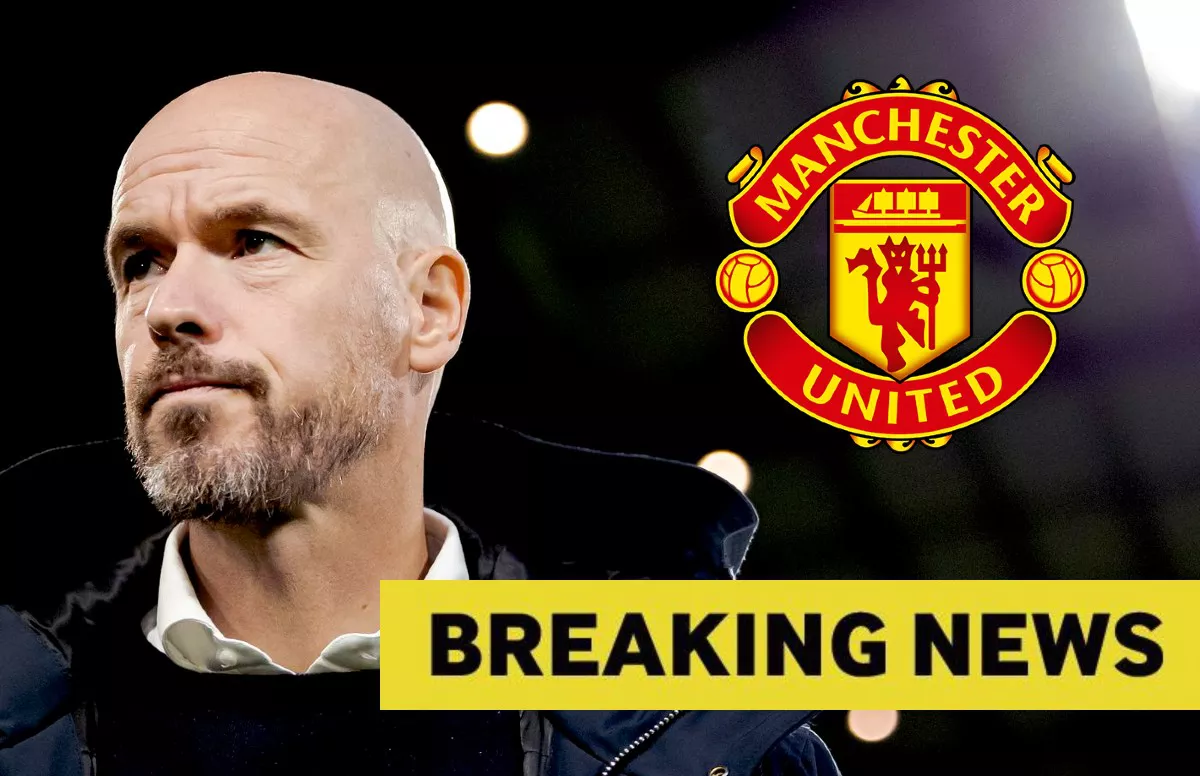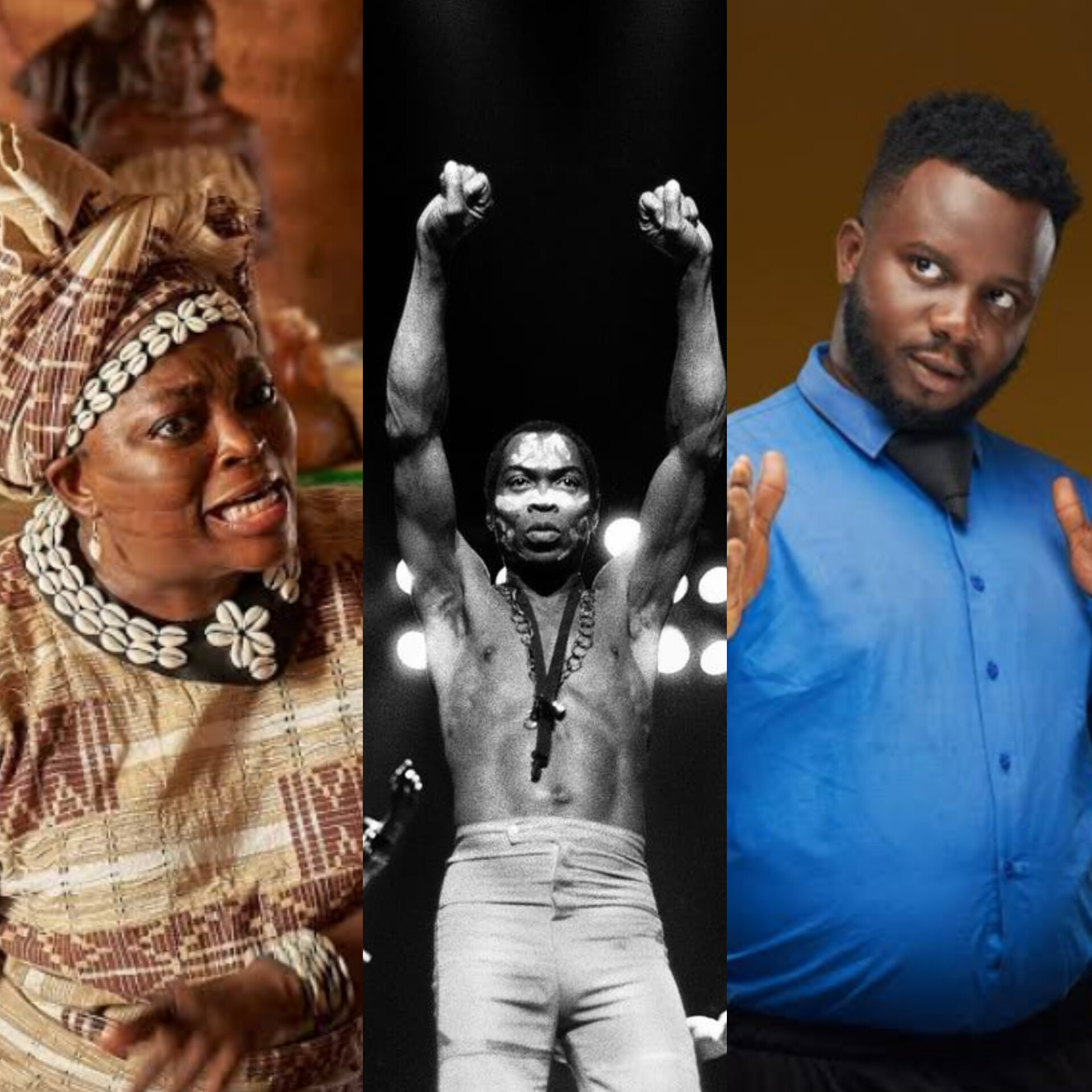By Fasuyi Tolulope Samuel
Singer Ric Hassani sparked intense debate among Nigerians after posting a heartfelt message about the fatal shooting of Charlie Kirk.
On X (formerly Twitter), Hassani wrote:
“I am so saddened by the assassination of Charlie Kirk. I am in so much disbelief and denial. It has felt like someone I know has been taken away from me yet he’s someone whom I never met. Rest in glory Charlie Kirk, you are with the good Lord in Eternal Peace. 🕊️”
Several Nigerians criticized Hassani for expressing deep sorrow over the death of a non-Nigerian figure, arguing that similar tragedies at home often go without public mourning. Others defended him, saying grief does not need borders, especially when the event is shocking and tragic.
Here are some of the replies to the post in the comment section below:
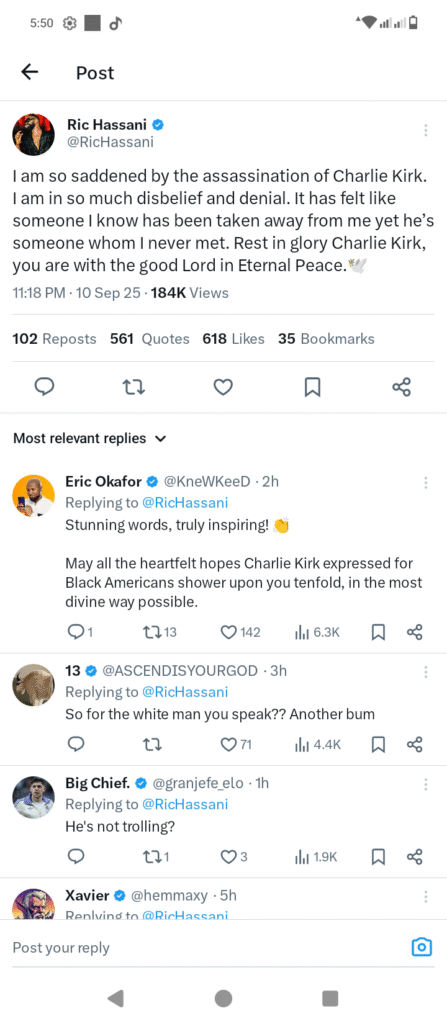
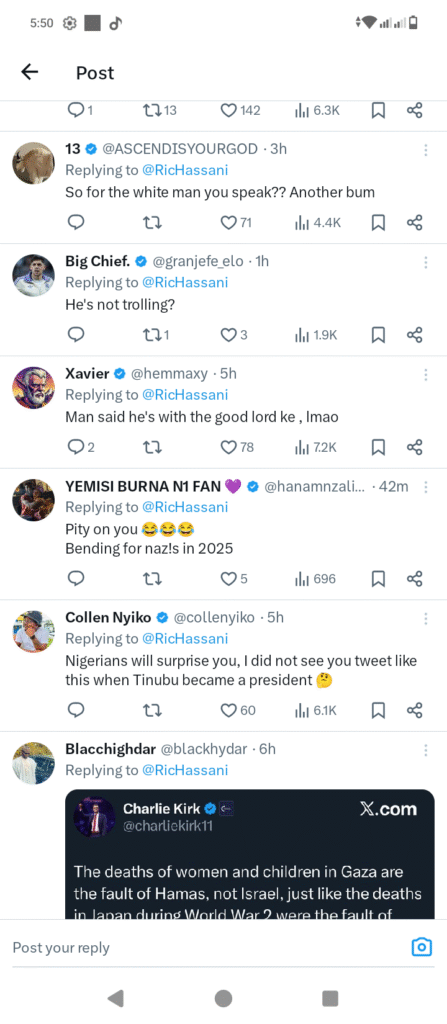
Charlie Kirk was a 31-year-old conservative activist, author, media personality, and the co-founder and CEO of Turning Point USA, a U.S. group that aimed to inspire young people around conservative values.
He gained fame through campus debates, podcasts, and rallies. His “Prove Me Wrong” speaking events were popular among his followers.
On September 10, 2025, Kirk was speaking at a public event on the campus of Utah Valley University in Orem, Utah, as part of his “American Comeback Tour.” Around 12:20 p.m. local time, he was struck by a sniper’s bullet while on stage.
The bullet hit him in the neck, and officials say he was pronounced dead later that afternoon. Authorities have recovered the suspected weapon—a bolt-action rifle—and are pursuing a person of interest. The motive remains under investigation, and the killing is widely being described as a political assassination.
Charlie Kirk’s death has triggered global conversations about political violence, free speech, and how societies respond to the sudden loss of divisive public figures.








